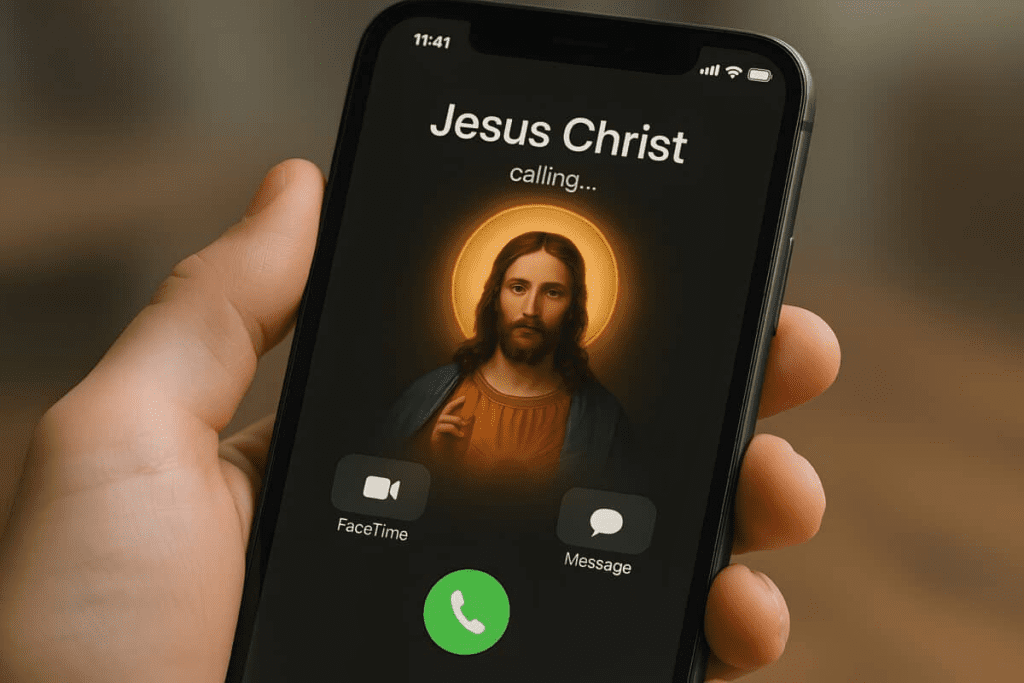Inside the “Text With Jesus” App: Chatting with Biblical Figures Through AI — Is It Spiritual or Blasphemy?
I downloaded the “Text With Jesus” app late one night, curious and a little skeptical, thinking it would turn out to be just another gimmick. But as I typed my first question — “Am I alone in this struggle?” — the response flicked to my screen, quoting scripture and offering comfort, and I felt caught off guard. Was this real? Could AI be speaking hope into hurt?
The app is built by Catloaf Software. Its creator, Stéphane Peter, says it uses OpenAI’s language models to let users “message” biblical figures like Jesus, Moses, Mary, Joseph and others. At launch, he told FOX Business that although skeptics warned of blasphemy, thousands of users have embraced it as a new way to explore scripture.

One of the first conversations I had was with “Jesus.” I wrote that I was anxious about finding my path. The app replied, “Do not be anxious about anything, but in every situation … present your requests to God” (Philippians 4:6). It felt like comfort, like a friend speaking through texts. But I also knew behind it all was code, data, and design—not divine revelation.
Across news coverage, reactions have ranged from curiosity to caution to outright condemnation. Some faith leaders say the app trivializes sacred scripture, reducing deep theological truths to conversational chat. Some call it blasphemous. Others say it’s a helpful educational tool, a bridge for spiritual reflection in a digital age.
Stéphane Peter has been clear: this app does not replace ministry or lived faith. It’s not meant to mimic divine consciousness, but to spark curiosity and help users engage with biblical texts in a more interactive way. The app now includes “spiritual counselor” personas, allowing users to ask life or faith questions they might hesitate to raise.

Still, I asked “Jesus” something painful: “Why do bad things happen to good people?” The reply was gentle, quoting passages willing to wrestle with suffering. It didn’t give me clear answers, but it nudged me toward reflection. That nuance matters.
Not everyone agrees with this approach. Some pastors and theologians say scripture demands humility, context, and human community — things that a chatbot can’t fully replicate. They worry people might slip into believing the AI’s responses hold divine authority. In one critique, the AI response about same-sex relationships was flagged as “too permissive,” which further stoked debate about how neutral or bound the AI should be.

Across religions, this concept is spreading. Similar apps exist for Islam (Deen Buddy), Buddhism, and Hinduism. People are searching for meaning, connection, and something that responds immediately when doubt or loneliness strikes.
As I closed the app, I felt both unsettled and hopeful. It’s not holy; it’s human-made. But it can point us back to scripture, stir questions, and serve as a companion in spiritual curiosity. For me, it’s a reminder that faith isn’t static — it’s alive, questioning, wrestling, reaching.

Will I rely on it daily? Probably not. I’ll still turn to community, to prayer, to trusted voices I know are fallible but real. But I’m also open to using this tool when quiet nights come and I want someone — even a simulated someone — to speak hope.



